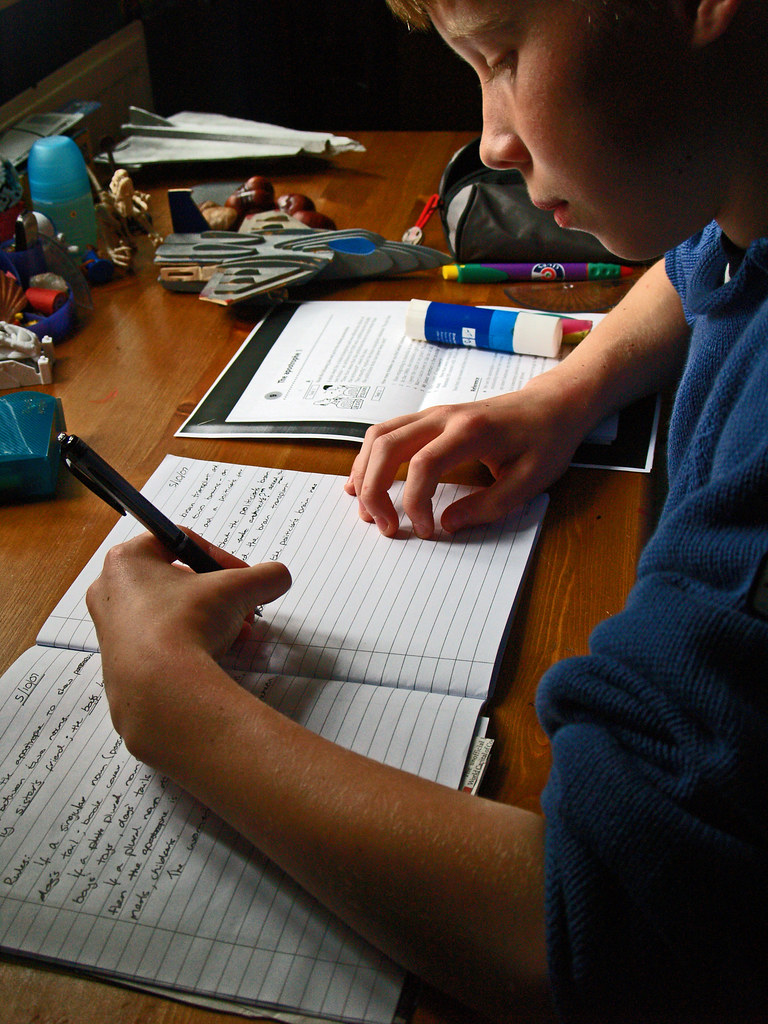Have you ever spent hours on homework, staying up late just to get it done in time? This may often be due to the fact that you have sports, music, drama club, or other after school activities to attend to.
According to “Should Kids Get Homework?” by Sarah Wood, “The standard homework guideline recommended by the National Parent Teacher Association and the National Education Association is the ’10-minute rule’ – 10 minutes of nightly homework per grade level.” However, that is not always the case.
“I recognize that everyone doesn’t do something at the same rate,” said Mr. Sherman, a history and sociology teacher at Ludlowe. This goes to show that you can’t really measure how long an assignment might take someone.
It all comes down to “the type of homework and if people follow through with it, [such as] do you really need 30 [math] problems to show you know it?” says Mrs. Linane, one of the special education teachers.
Students claim that some homework is good but there is often too much and sometimes is considered busy work.
“Some homework is so unnecessary,” said Julia Leykikh, a student at Ludlowe. “I try to give enough for practice but not over kill,” said Mrs. Poole, one of the math teachers.
When teachers say to finish something for homework, it is a “useful way for kids who need more time [because] kids work at different paces,” says Ms. Brownrigg, an English teacher.
“Depends on how one defines homework [because it] carries a negative connotation,” says Mr. Sherman, such as if you call it an assignment rather than homework kids might have a different perspective on the task.
“The word [homework] itself feels like an invasion of your life outside of school,” this means that kids think of it as work. Mr. Sherman also states that “work means something you don’t want to do.”
“Finishing classwork for homework is fine,” said Madeleine Braley, another student. “If everyone works productively then it shouldn’t spill over for homework.” says Mrs. Linane.
By doing this it also gives students motivation to get it done so that it won’t be considered homework. “[it’s] how you value your time,” says Mr. Sherman
Homework can be beneficial in teaching kids time management skills that they will need later in life. “[the] practice of not getting things done on time,” said Mr. Sherman
This means that if a student doesn’t do their homework on time that there will not be a life threatening consequence. Instead, the consequences for not getting homework done on time might be something like a lower grade.
Mr. Sherman also claims “Homework as a timed responsibility held by students when they are not being observed by teachers which can be argued to be an invaluable behavioral teaching tool of timed accountability as there are many aspects of personal and professional adult life in which time is essential.”
He then counties to use an analogy, saying “A transporter of live organs cannot ask for an extension nor can a military leader or a parent whose child needs immediate care.” This shows that homework teaches kids more than just the subject that is being taught. “The importances of time and other people’s time,” said Mr. Sherman.
“The more practice, the better you become,” says Mrs. Linane. With anything like a sport or a musical instrument you’re going to practice because you want to get better at it. And the same goes for homework, too.







